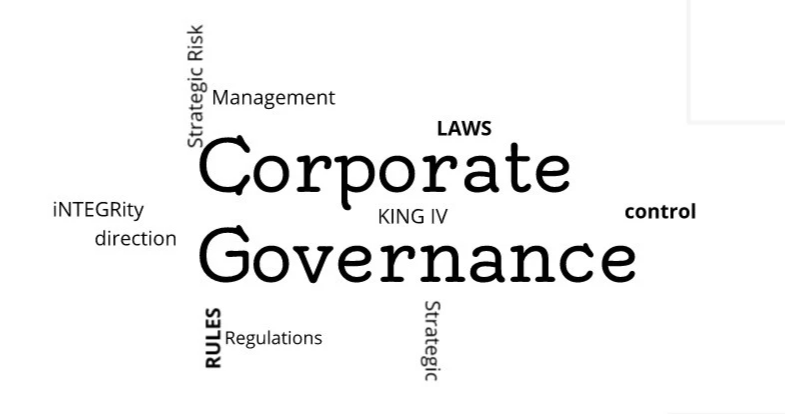When one thinks about governance the words like government, bureaucracy, hindrance, red-tape, burden and a whole lot of other synonyms come to mind. In fact to most it is a cringe-worthy word which brings about quite negative emotions. But it doesn’t have to be that way, governance especially when done well is word that brings to mind things like value, ethical leadership, profits, leading by example, etc.

You see with good governance comes good things, especially for profit making organisations. With good governance comes share profit increases, a good image, being liked by customers, and great relationships with regulatory stakeholders to name a few.
But it is not surprising that most people find the word and the actions associated with it appalling because of historical events and actions of many. Even the meanings of the word can leave those affiliated with democratic dispositions with a bad taste. Take for example the dictionary definition of governance:
“The system of rules, practices and processes by which a company is directed and controlled. Corporate Governance refers to the way in which companies are governed and to what purpose. It identifies who has power and accountability, and who makes decisions.”
The definition although factual is nuanced with autocracy, and a touch of strictness and rigidity. But alas, governance or the “Exercise of ethical and effective leadership by the governing body towards the achievement of the following governance outcomes: ethical culture, good performance, effective control and legitimacy” as defined by the Governance Institute of Southern Africa gives governance the flavor of less rigidity and makes it more palatable to everyone. It is through this definition that governance becomes more tolerant.
Thus, in essence corporate governance shouldn’t be seen as the stick which the headmaster uses to keep his students in check but should rather be seen as a mechanism to promote an ethical culture in the organisation, achieve better results and legitimacy. Through good governance organisations can achieve more.
Let’s take for example in 2018 / 2019 MTN the mobile network operator which was fined millions of dollars in Nigeria for not adhering to good governance practices. A compliance audit found the company to have erred for not de-registering sim cards on their network. Compliance is part of governance, had MTN complied they would not have had to cough up millions of dollars in fines for this. Bad governance is costly.
Another classic example is that of the financial crisis in 2008 partly fueled by the Lehman brothers and their mortgage lending to borrowers without full documentation. Another example is that of Enron, the list continues. These prime examples have led to regulators and other regulatory bodies to make it compulsory for some companies to comply with certain rules and regulations. This is part of corporate governance and these prime examples have given a resurgence to good corporate governance.
The quest to reach good governance is not an easy road and may be paved with costly activities but the rewards are phenomenal. I wish all companies and individuals would want to be branded as being ethical, and legitimate but alas, that is not so. Good governance is a fantasy, an unattainable dream to some, as the world is still riddled with companies making the same bad choices that go against the very grain and fibre of good governance.
Good governance doesn’t have to be a bane but it’s a choice that companies make and it doesn’t take rocket science to figure out, what is wrong and what is right and how to make things in the company work. It’s about giving accountability and responsibility to those who will ensure that the company is controlled, managed and run smoothly, i.e. the board of directors and management. These directors are given the authority by the shareholders to steer and set the strategic direction, to approve policies and planning, to ensure accountability and to oversee and monitor the performance of the company (King IV, 2018). Broadly speaking these are the fundamental pillars of corporate governance and should be present in any organisation whether large, medium or small. So every organisation should have strategic direction and the mechanisms and processes to manage that, every organisation should have policies in place for every function in the organisation. Every organisation should monitor its performance. Easy right?!
It takes effective and ethical leadership to reach good governance, and for the organisation to have the characteristics of responsibility, accountability, fairness, transparency, integrity and competency.
Good governance is a choice, not an easy feat but a rather beneficial choice!